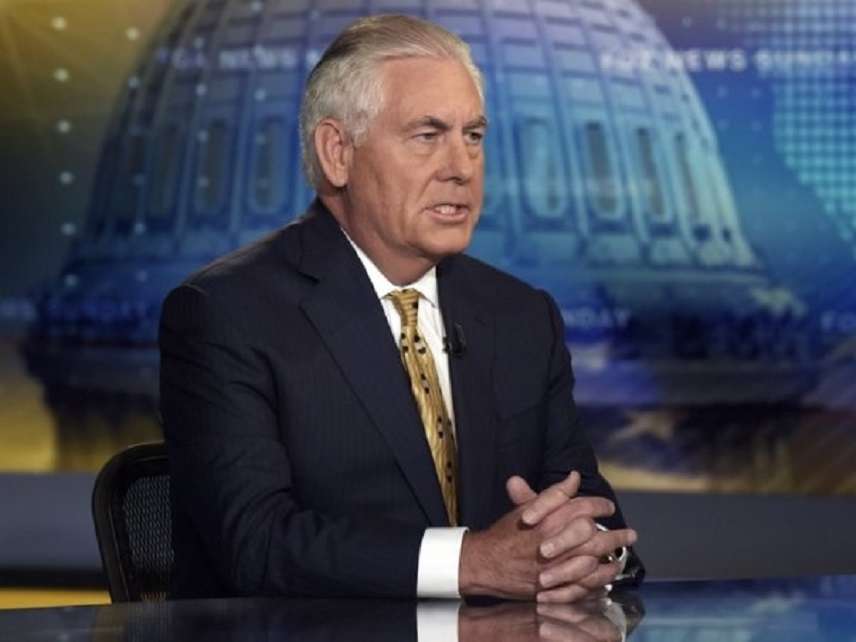Rex Tillerson Is Right: Trump, and All U.S. Presidents, Speak For Themselves
American values are a bottom-up, not top-down, affair

Secretary of State Rex Tillerson was asked by Fox News' Chris Wallace how President Trump's statements on racial violence, which blamed the media and both-sidesism more than the individuals themselves, reflect on American values, and whether they make the advancement of such undefined values more difficult. "The president speaks for himself," Tillerson responded curtly.
And he's right.
Tillerson also insisted that America's values, rather, were voiced by the State Department
"We represent the American people," Tillerson said of the department he runs. "We represent America's values, our commitment to freedom, our commitment to equal treatment of people the world over, and that message has never changed."
Wrong.
The State Department no more represents American values than the U.S. president does. While the president "speaks for himself," the State Department does, arguably, articulate the values privileged by the U.S. government.
These are still not necessarily reflective of the American people, and that's ok. In a nation of more than 300 million, it's ridiculous to think any one person or institution could express American values. Instead, the U.S. government is a mix of political partisans, who represent, at best, the values of the voters who put them in power, and career officials, who represent, at best, those values useful to the U.S. government.
American values, such as they are, are an emergent property, articulated by actions at an individual and community level, not something imposed from above.
Barack Obama would often complain that "this is not who we are as a country" when things didn't go his way, particularly on the kind of partisan issues, like guns and government spending, that deeply divide the country. Such an attitude was unhelpful, and certainly didn't make it easier to build a consensus.
Foreigners will sometimes tell U.S. tourists that they "love Americans" but "hate their government." It's as important a distinction for Americans to realize this as for anyone else.
Politicians running the ideological gamut of beliefs will regularly insist they speak for all Americans, especially once they are in power. But no matter how high-minded their rhetoric, these politicians ultimately only speak for those interests they choose to represent, prioritize, and engage. That's how republican democracy works—by throwing together such politicians, each with a different set of interests they believe represent "Americans," and imposing checks and balances on them while they attempt to compromise or coalition-build, or get nothing at all done, which is good too.
Tillerson is right—Trump speaks for himself, not for all Americans. It's not yet a dictatorship, after all.


Show Comments (11)